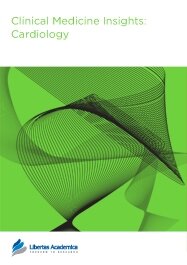

Publication Date: 09 Feb 2015
Type: Review
Journal: Clinical Medicine Insights: Cardiology
Citation: Clinical Medicine Insights: Cardiology 2015:9 1-9
doi: 10.4137/CMC.S21372

Reduced exercise tolerance is an independent predictor of hospital readmission and mortality in patients with heart failure (HF). Exercise training for HF patients is well established as an adjunct therapy, and there is sufficient evidence to support the favorable role of exercise training programs for HF patients over and above the optimal medical therapy. Some of the documented benefits include improved functional capacity, quality of life (QoL), fatigue, and dyspnea. Major trials to assess exercise training in HF have, however, focused on heart failure with reduced ejection fraction (HFREF). At least half of the patients presenting with HF have heart failure with preserved ejection fraction (HFPEF) and experience similar symptoms of exercise intolerance, dyspnea, and early fatigue, and similar mortality risk and rehospitalization rates. The role of exercise training in the management of HFPEF remains less clear. This article provides a brief overview of pathophysiology of reduced exercise tolerance in HFREF and heart failure with preserved ejection fraction (HFPEF), and summarizes the evidence and mechanisms by which exercise training can improve symptoms and HF. Clinical and practical aspects of exercise training prescription are also discussed.
PDF (482.89 KB PDF FORMAT)
RIS citation (ENDNOTE, REFERENCE MANAGER, PROCITE, REFWORKS)
BibTex citation (BIBDESK, LATEX)
XML
PMC HTML

The review process in Libertas Academica journals is prompt, objective and rigorous. The entire process is smooth and clear and all the editorial staff are cooperative and professional. Published papers are of top clinical and scientific value, and high metrics reflect the excellent quality of Libertas Academica's journals.
Facebook Google+ Twitter
Pinterest Tumblr YouTube